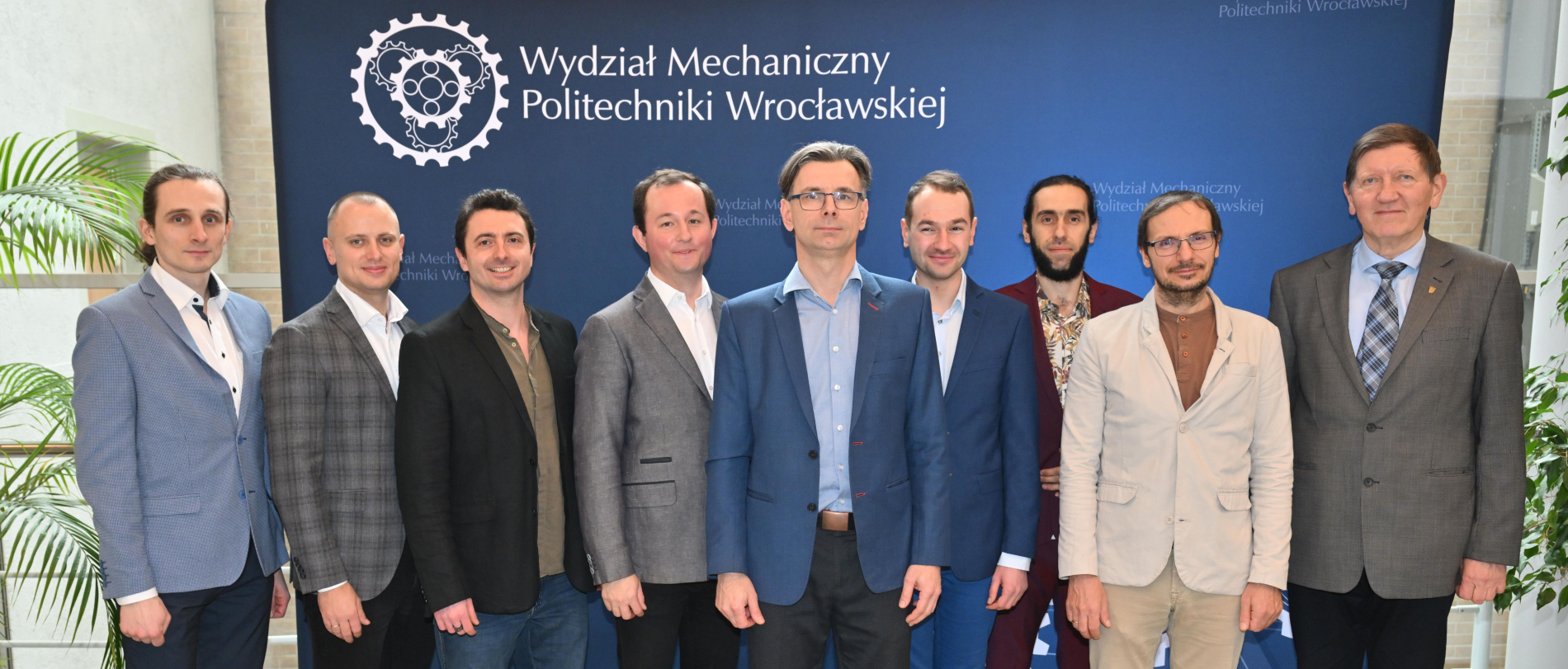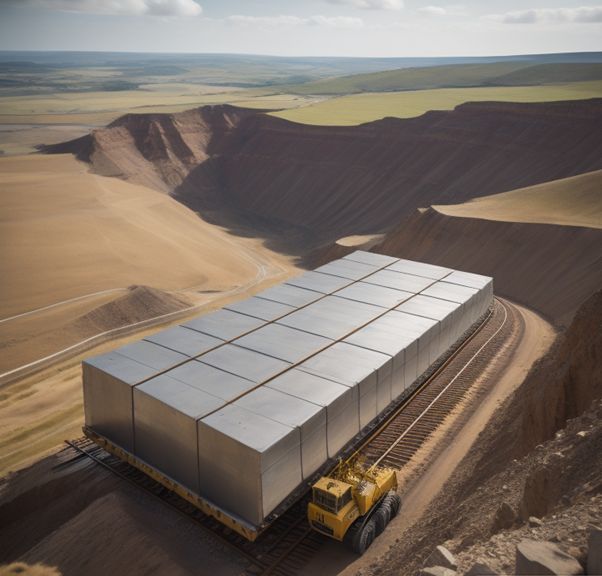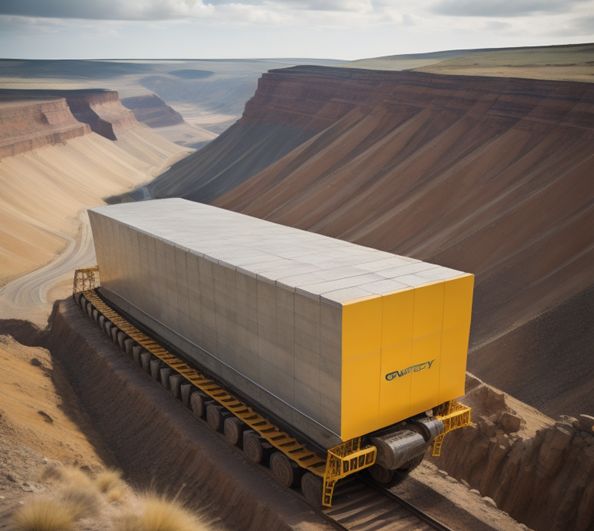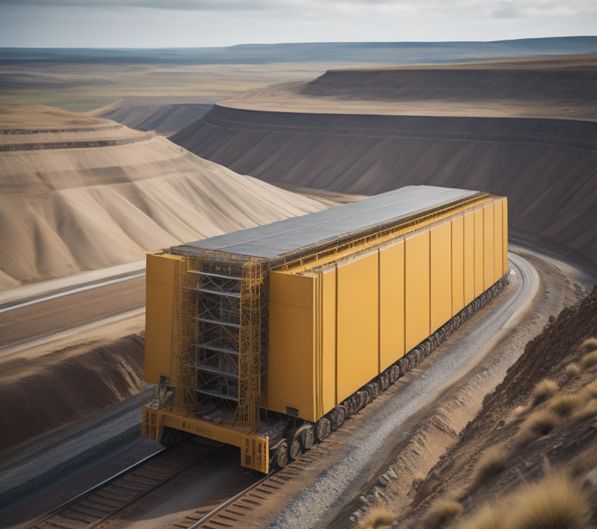YOUR BROWSER IS OUT-OF-DATE.
We have detected that you are using an outdated browser. Our service may not work properly for you. We recommend upgrading or switching to another browser.
Date: 05.03.2024 Category: general news, international cooperation, science/research/innovation

The development of renewable energy sources necessitates the production of new storage methods. What if gravity storage facilities were used for this purpose? An international scientific-industrial consortium headed by Wrocław University of Science and Technology is working on such a solution.
 Named “GrEnMine – Gravitational Energy Storage in the Post-Mine Areas”, the project is funded by the European RFCS (Research Found for Coal&Steel) programme. This first international research project under the RFCS programme is carried out by a consortium headed by Wrocław University of Science and Technology.
Named “GrEnMine – Gravitational Energy Storage in the Post-Mine Areas”, the project is funded by the European RFCS (Research Found for Coal&Steel) programme. This first international research project under the RFCS programme is carried out by a consortium headed by Wrocław University of Science and Technology.
Our university’s research team, led by Professor of the University Przemysław Moczko, PhD, Eng. of the Faculty of Mechanical Engineering, includes Professor of the University Damian Pietrusiak, PhD, Eng., Professor of the University Jerzy Czmochowski, PhD, Eng., Professor of the University Marcin Kowalczyk, PhD, Eng., Piotr Odyjas, PhD, Eng., Jędrzej Więckowski, PhD, Eng., Jakub Andruszko, MSc, Eng., Tomasz Dobosz, MSc, Eng., and Maciej Olejnik, MSc, Eng.
Renewable energy sources are key to the energy transformation. Their development and use are part of the European Union's new growth strategy and the European Green Deal. However, the increasing importance of these sources in the production of electricity implies the need to develop new ways related to energy storage.
“This is one of the most important challenges in power generation systems, which involve many different technologies. The growing share of renewable energy in the energy mix, in this case mainly wind or photovoltaic energy, makes stable operation of electricity systems difficult due to frequent shortages or surpluses of energy,” says Prof. Przemysław Moczko. “For this reason, we’re seeing the rapid development of various energy storage technologies aiming to ensure the safe operation of low-carbon energy generation and distribution systems. Gravity storage is one of them,” he adds.
 Gravitational energy storage technology has been the subject of extensive research and pilot projects for several years. This type of energy storage solution is a device that uses the potential energy of large masses, such as concrete blocks. One of the existing concepts involves a device resembling a crane that lifts special blocks up to 100 metres high.
Gravitational energy storage technology has been the subject of extensive research and pilot projects for several years. This type of energy storage solution is a device that uses the potential energy of large masses, such as concrete blocks. One of the existing concepts involves a device resembling a crane that lifts special blocks up to 100 metres high.
The principle of its operation, in a nutshell, is that when excess energy enters the electricity grid, the crane automatically raises the blocks, i.e. stores the energy, and when the energy is to be returned to the grid, the blocks are lowered. The element that converts the stored potential energy into electricity is a generator array with a frequency converter.
As part of the “GrEnMine” project, the researchers have proposed two energy storage technologies – RM-GES (rail-based) and CB-GES (conveyor-based), which will be developed in detail throughout the project. Also, the Turów Lignite Mine, owned by PGE Górnictwo i Energetyka Konwencjonalna S.A., will host a pilot project consisting in a small-scale energy storage facility to demonstrate and verify the viability of the proposed technology.
“We also want to identify the potential for energy storage in post-mining areas and other potentially useful sites in Poland and other parts of Europe. In doing so, we will create new prospects and propose innovative ways to develop these regions associated with conventional energy production,” explains Prof. Przemysław Moczko. “It fits perfectly with the key guiding principles of the RFCS programme, which aims to promote just transformation,” he adds.
 Apart from Wrocław University of Science Technology, the scientific and industrial consortium includes AGH – Stanislaw Staszic University of Science and Technology in Cracow, Four Point sp. z o.o., Lignitorichia Achladas S.A, Oltenia Energy Complex S.A., PGE Górnictwo i Energetyka Konwencjonalna S.A., Poltegor Institute., the Institute of Underground Mining, Technical University of Crete (Greece), University of Petrosani (Romania), and the Brown Coal Research Institute (Czech Republic).
Apart from Wrocław University of Science Technology, the scientific and industrial consortium includes AGH – Stanislaw Staszic University of Science and Technology in Cracow, Four Point sp. z o.o., Lignitorichia Achladas S.A, Oltenia Energy Complex S.A., PGE Górnictwo i Energetyka Konwencjonalna S.A., Poltegor Institute., the Institute of Underground Mining, Technical University of Crete (Greece), University of Petrosani (Romania), and the Brown Coal Research Institute (Czech Republic).
The project is also the result of cooperation between our university and PGE Polska Grupa Energetyczna S.A., a partner of Macrocluster – Technologies for Public Safety. The initiative, originated by the Marshal's Office of the Lower Silesian Voivodship, the Municipality of Wrocław, the Western Chamber of Commerce, Wrocław Tech, and other partners, aims to carry out joint research, development, implementation, and educational projects.
Our university's task as part of the project will be to detail the proposed energy storage technologies and design a demonstration storage facility. In addition, as consortium leader, Wrocław University of Science and Technology will coordinate the entire project.
The budget of the project, expected to take three years, is over 3.5 million EUR, of which 1 million EUR will be spent on Wrocław Tech’s research.
Our site uses cookies. By continuing to browse the site you agree to our use of cookies in accordance with current browser settings. You can change at any time.